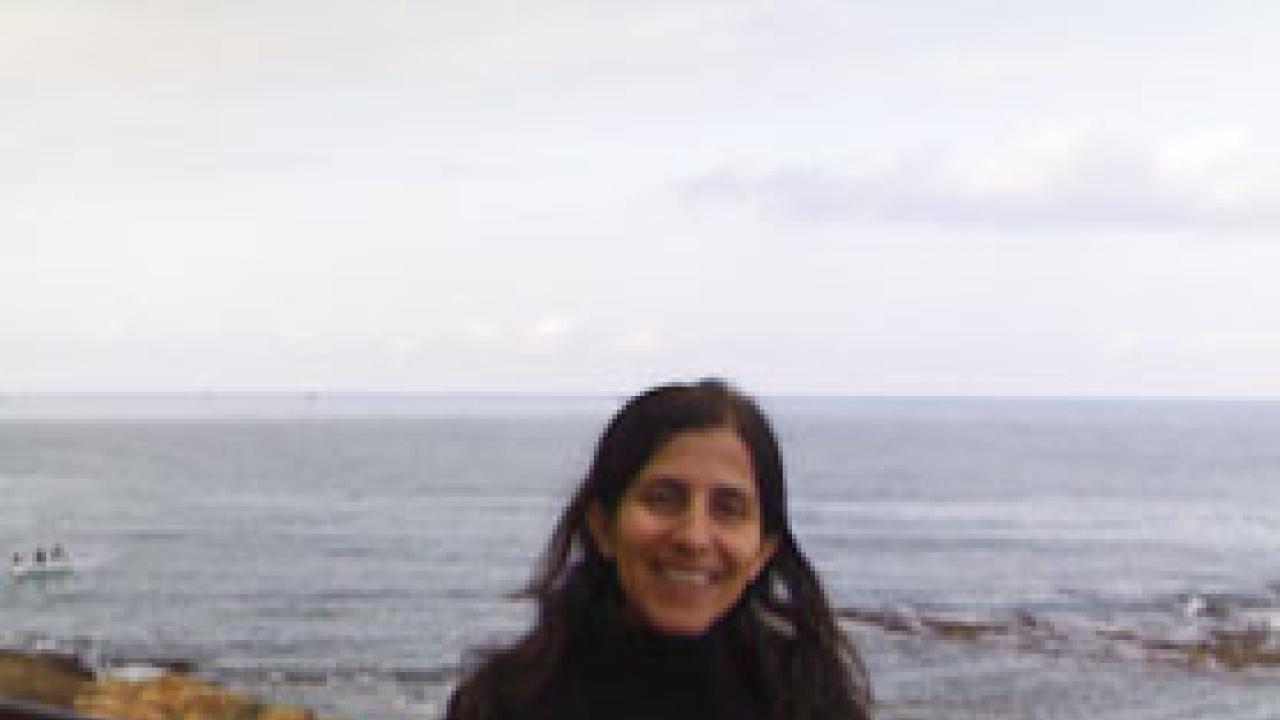
Mathematician Meral Tosun has studied in many parts of the world, including France, Italy, Japan, Mexico and her home country, Turkey. As a woman, studying math in Turkey was never an issue for Tosun. She had equal opportunities compared to her male peers and, due to the large percentage of Turkish women studying math, was never a minority based on her gender until she left the country to pursue higher education. She earned a scholarhip to attend the Universite Paris VII in France to study toward a PhD in Algebraic Geometry where she was one of two female students in her class of 20.
After completing her PhD in Universite d'Aix Marseille I, she came to ICTP for her first postdoc in 1999, where she met many renowned mathematicians and physicists. During her postdoc, she presented her PhD research and collaborated with Professor M.S. Narasimhan and other notable visitors. "I am still very good friends with many of the people I met during my postdoctoral fellow at ICTP, and I still collaborate with some of them," Tosun says.
No matter what country Tosun visits, she sees the same trend of women in mathematics: as women advance toward higher levels of education in math, more choose to drop out of academia, often because they meet a crossroads between family and career. While governments in many countries are addressing the topic of pregnancy in the academic world by offering maternity leave, Tosun argues that some approaches are better than others, and she works to help mothers remain active in academics.
"Some governments allow a woman to take between six months to a year off for maternity leave, but this can push women into isolation," Tosun says.
A year away from research is enough time to make any scientist rusty, which simply adds to the difficulty of returning to work while finding care for a child. Therefore, when one of Tosun's colleagues had her first child, Tosun encouraged her to work part-time two months after giving birth. Instead of teaching three lectures per semester she taught one, and the approach worked.
"This woman successfully completed a PhD programme at a prestigious university, so why quit after having a child? She clearly has talent and skill, and that's why I tried to help her," Tosun says.
Tosun's colleague now has two children and continues to work with Tosun as a professor of mathematics at Galatasaray University in Istanbul. The department has seven professors, three of whom are women. In fact, despite the downward trend of women studying mathematics, Turkey generally has a large number of women in Bachelor mathematics programmes. For the 2011/12 academic year, around 60 percent of undergraduate math majors attending Turkish universities were women. Compare that with the roughly 10 percent of women ranked as professors of math in the country and the downward trend emerges.
"Math is still a man's world," Tosun says. "Moreover, if a woman has a baby, it is practically impossible for her to attend a conference unless she finds care for the child, which is not the case for the father."
With that in mind, Tosun and two other female mathematicians organized two workshops for women in mathematics that included facilities for child care. Today, she is an ICTP Associate and professor of mathematics at Galatasaray University, continuing her research in singularity theory/algebraic geometry.
"I think that the Associateship is one of the best applications of ICTP," she says. "After I'm finished with my teaching duties, I enjoy the opportunity to go to such a peaceful and relaxing place to think on my students' research problems and have time to read and learn new things."
Tosun has four graduate students, three of whom are female. For the last seven years she has fervently worked to expand upon a type of theorem mathematicians and physicists have been using since the 1970s to determine the relation between Lie algebras and singularities of complex surfaces. This theorem, however, is limited to certain cases and Tosun aims to generalize it for broader use and applications.
"The support for math decreases almost every year," Tosun says. "Governments seem to have less of a budget for mathematics despite it being very important for other fields of scientific and technological development. The governments should recognize the importance of supporting mathematics, and mathematicians should ensure that both men and women have equal opportunity to study it."
















